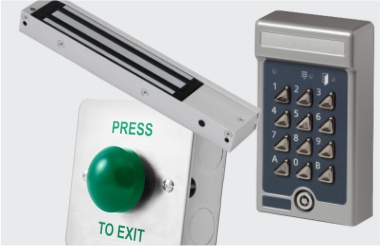How Can Access Control Systems Improve Security In Residential Buildings?
The first thing anyone wants from a home is to feel safe and secure in it, and in a singular residential house we are largely in control of that. We can install any security features we like, we can allocate keys or authorisation as we wish and we can easily monitor who comes and goes. In a residential building – ie. a complex of multiple flats or apartments – this is harder to manage and as a resident you have much less control.
Why are residential buildings a higher security risk?
- There is usually one point of access, which if breached, then provides an unauthorised person with an entire complex of residences to try and break into, often out of public view.
- Several people will have access to the residential building and hence there are multiple ways in which security levels can be compromised.
- People are coming in and out of the building all day, every day, so it is harder to establish who is a resident, who is a genuine visitor and who is an unauthorised person.
What is access control for residential buildings?
An access control system for a residential building is a system that allocates authorisation to enter the complex building and then vets each person for the required credentials when they attempt to enter. Entry is usually granted via a form of access, such as a code or PIN number, a fob, a card, a biometric feature or a smartphone app.
The management or owner of the complex would need to select a system that is aligned with the unique needs and practicalities of the residential complex, and reflects the security expectations of the residents. The means used to gain access through the single point of entry, would usually be different to the means then used by each resident to access their own individual property.
The benefits of access control for residential buildings
If an access control system is selected and installed in a residential building, it will offer the following benefits:
- Security – An access control system assures the residents that the main point of access is securely controlled and therefore they have a layer of security in addition to their own front door. In many cases this is more security than a residential house would be able to offer.
- Convenience – Access to the building is usually via a contactless method and hence is quick and convenient for those with authorisation. It is often the case that the same fob/card/code etc can also be used to access other communal facilities in the building.
- 24/7 – You are able to access the building with the correct authorisation on a 24/7 basis, and hence can come and go as you please, and from the building management or owner’s point of view, they don’t have to employ a physical means of security, such as a security guard.
- Visitors – Most systems allow visitors to be granted temporary access, which can be controlled by the residents, and includes family and friends but also delivery drivers or contractors who can be issued with temporary credentials to gain access. The visitor management system does rely on individual responsibility, so does need to be managed carefully.
- Remote management – The system can be remotely managed by the owner/manager, which gives them visibility of the system at all times, and through which they can be notified if a security threat occurs. The system can also be monitored to see who is accessing the building and when.
- Restrict access – Whoever has system administration permission is able to restrict access as and when necessary. So if a resident is enabling unauthorised access, has moved out or is posing a security threat, their individual access rights can be immediately removed.
- Communal facilities – An access control system ensures there is no unauthorised use of communal facilities in a residential complex, which in some cases can include car parking, post room facilities, vending machines, lobbies, gym facilities, laundry facilities and dining areas. These are usually included in the rental price as an additional feature and attraction, and hence it is important to the resident that they remain exclusive to them.
- Harder to breach – A modern access control system will be digitally controlled and hence is much harder to breach than a traditional mechanical lock. It is possible to hack a digital lock, but it is also easier to guard against this with encrypted systems and updating passwords or software. It is also highly unlikely someone would have the time or technical knowledge to attempt this.
- Integrate – A residential building manager or owner can integrate the access control system with other smart systems on site, such as security alarms, CCTV and light systems, mostly using motion sensors so that these systems are activated when someone enters a building.
Contact MB Direct for more information about access control systems
If you are interested in installing an access control system in your residential building, we can talk to you about all the access control systems and accessories in our range, and what the advantages of each one are. We can advise on the best system to suit your needs, so contact our team today.